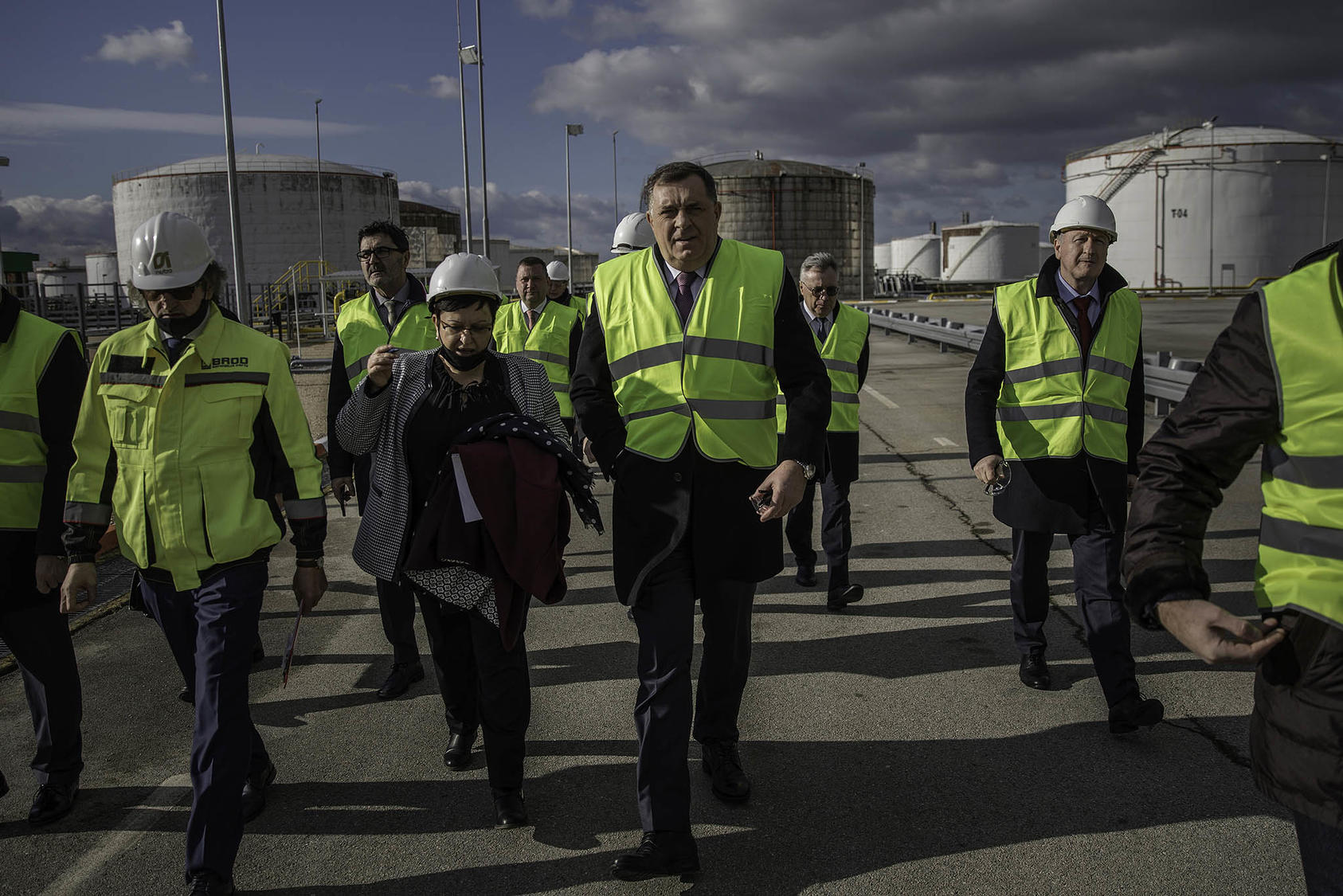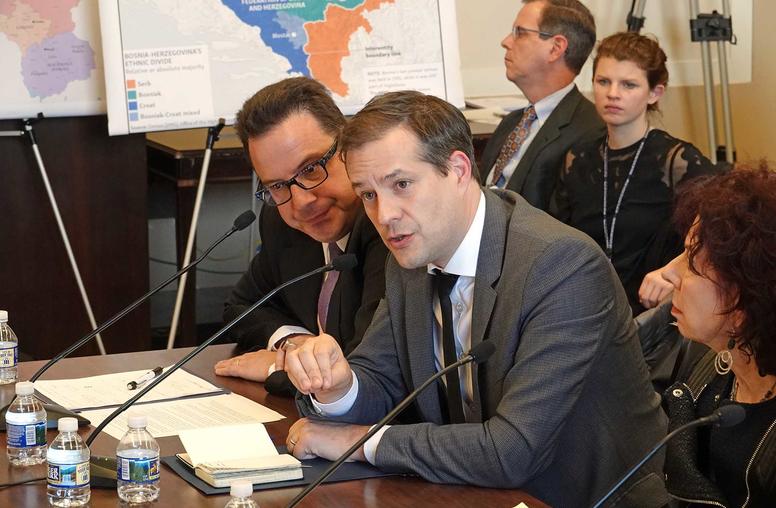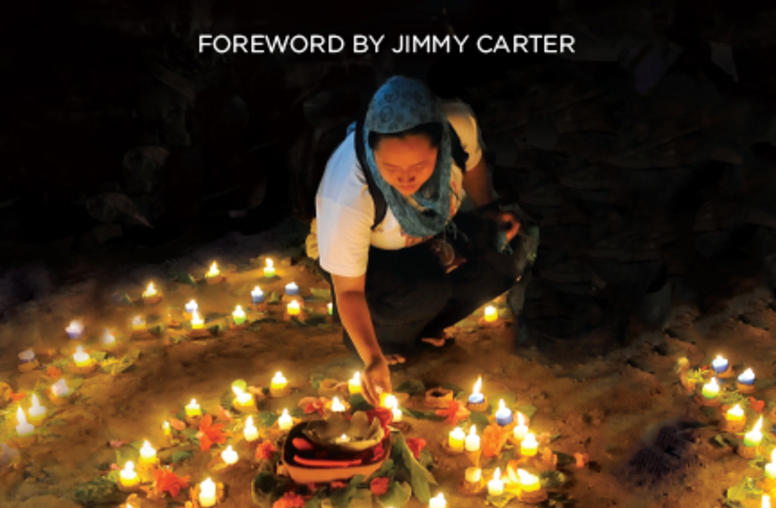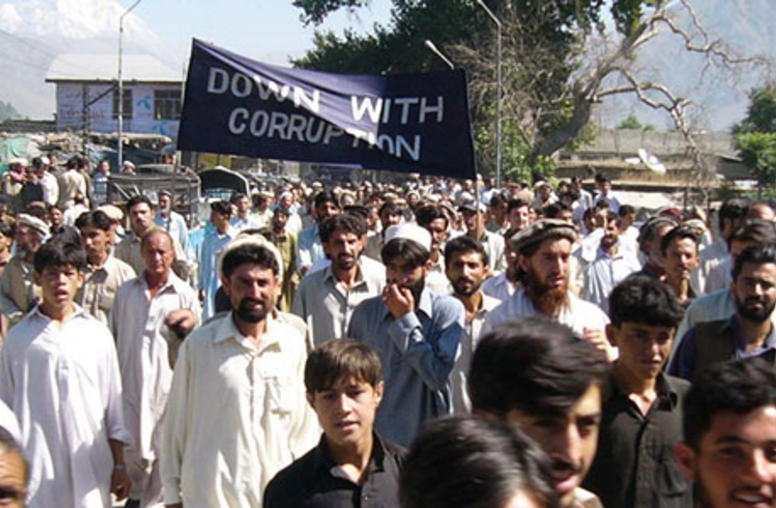Dislodging Putin’s Foothold in the Balkans
With the West focused on Ukraine, Russia is taking the opportunity to nibble away at NATO’s borders and to sow discord.
The impact of Russia’s invasion of Ukraine on the Balkans can only be understood by considering Moscow’s malign influence in the region from a broader perspective. While Russia has specific objectives related to each individual country in the region, its overall objective is clearly to target the Western Balkans through a divide and rule approach, using multiple tools of influence. While the United States and its European partners focus on the war in Ukraine, Russia is taking the opportunity to nibble away at NATO’s borders and to sow discord in countries hoping to some day present a strong case for joining the European Union.

Moscow reaches the region’s population mainly through political proxies, local media outlets and the Orthodox Church, all of which work to exploit divisive issues and deepen existing cleavages in the various societies. The alleged threats posed by NATO expansion, EU reforms and “Muslim extremists” in Bosnia and Kosovo are often exaggerated and manipulated by Moscow to exacerbate tensions and create a sense of insecurity within the general population.
Bosnia and Herzegovina is perhaps the clearest example of a country in which deep Russian tentacles can be found. Moscow has numerous pressure points to exploit in a country that has long been caught between pursuing greater integration with the European Union and NATO on the one hand, and, on the other, hardline Serb nationalist political elements in the Republika Srpska (one of the two autonomous entities that comprise Bosnia; the other being the Federation of Bosnia and Herzegovina) that are keeping the country under Belgrade’s and Moscow’s influence. Moscow enjoys a series of local assets including highly placed Serb nationalist politicians such as Milorad Dodik, the president of the Republika Srpska. There are also biker gangs such as the local chapter of Night Wolves, paramilitary militias such as the Serbian Honor, murky businessmen, pro-Russian media outlets and — above all — the transnational Serbian Orthodox Church.
Russia’s main soft power narratives boil down to two elements: anti-Western opposition and civilizational Orthodox brotherhood. The Russian Orthodox Church’s discourse against Western “moral decadence” (adopted verbatim by the Serbian Orthodox Church) allows Moscow to describe the process of European integration as yet another instance of normative Western imperialism, seeking to impose liberal values that are alien to local societies (who allegedly have more in common with Eastern Orthodoxy than with the West). One key element of this technique is to blame the current intercommunal tensions on hostile Western actions and ignorance, and create the impression that Russia is only reacting to Western aggression. Hence, Russia exploits not only religious and ethnic vulnerabilities in the region, but also a declining confidence in democracy and lack of will for liberal democratic reforms that has plagued the Balkans after a decade of stagnation.
Balkan Responses to the Ukraine Invasion
Just as Balkan nations have different cultures, ethnicities and political histories, their reactions to the invasion of Ukraine have likewise differed significantly. Some were clearly repulsed by Russia’s invasion of a sovereign democratic country, particularly Croatians, Bosnians and Kosovars who are able to identify with the plight of Ukrainians because of their own similar experience at the hands of Slobodan Milošević’s irredentist aspirations back in the 1990s. They are anxiously considering possible geopolitical repercussions and understandably asking what it could mean for their political futures. Others have openly expressed support for President Vladimir Putin and his war on Ukraine, such as Dodik and Serbian President Aleksandar Vučić. In the case of Serbia, despite Vučić’s “sitting-on-two-chairs” policy between Moscow and Brussels, large numbers of ordinary Serbians support Russia’s invasion of Ukraine, including with massive street demonstrations where Putin and the Russian military were lionized.
Currying favor with such Balkan leaders works is in the best interests of the Russian Federation and Putin. Through energy and commercial investments, the Kremlin has managed to establish a vital source of funds and proven itself capable of expanding its influence in a rather short period of time. Well-connected kleptocratic circles in the Balkans see the Russian connection as very lucrative, much the same way as they perceive Chinese investments. Hence, both Putin’s oligarchs and kleptocratic nationalists in the Balkans seem to be on the winning team.
Looking at Eastern Europe from a broader perspective, the parallels of Russia’s threats to Bosnia and Ukraine are unerringly uncanny. Bosnia and Herzegovina is squarely located in a region where the interests of NATO and Russia intersect. Though the West recognizes some of the potential benefits associated with Bosnian membership of NATO, it does not seem inclined to actively prevent the country slipping into Kremlin-induced disarray. For example, if Russian backed Bosnian Serbs declare independence, an unrecognized pro-Russian, Abkhazia-like statelet will be formed on the borders of two NATO member states, Croatia and Montenegro. If Bosnia spirals out of control, it would be a highly pernicious illusion to think that the rest of the region will remain stable. Time and time again, Moscow has demonstrated that the Balkans are a conducive environment for punching back against the United States and EU.
Countering the Kremlin
From Moscow’s perspective, projecting power in the Balkans is tantamount to giving the West a taste of its own medicine. If the Europeans and the Americans are meddling in its “backyard” — Moldova, Ukraine, Georgia or any other part of its “near abroad” — Russia believes it is entitled to do the same in theirs. However, there are several courses of action that could blunt the trajectory of Russian influence in the Balkans if applied expeditiously and robustly.
First and foremost, Europe and the United States need to enhance and support a strong and responsive security architecture in Bosnia, Kosovo and Montenegro — the region’s soft and vulnerable underbelly in the sense that these countries offer Moscow countless entry points for exerting malign influence. It is vital to incentivize the strengthening of state level military institutions and capacity in the Federation of Bosnia and Herzegovina, which is both pro-NATO and pro-EU. In the absence of a robust and stabilizing military footprint, the Republika Srpskacould further drag all of Bosnia into Belgrade’s and ultimately Moscow’s orbit.
Second, Russian disinformation campaigns in the local Western Balkan languages nurture political and ethnic divides, fanning distrust and instability. Lessons need to be applied from Baltic countries that have developed effective counter-disinformation methods. To this end, Bosnia’s partners in Europe and Washington should help to facilitate coordinated efforts between private technology companies, social-media platforms and government agencies in the Western Balkans. Also of significant value would be increased training programs for Balkan journalists to raise their awareness of and capacity to address disinformation and fake news.
Finally, one of the core sources of political instability in Bosnia and Herzegovina is its constitution. Though initially envisaged and enacted as part of a much-needed peace agreement in the mid 1990s, all sides agree that it needs to be revamped. The international community — with Europe and the United States in the lead — should re-incentivize all relevant actors to begin work on a new constitution that could eventually benefit all citizens and through respect for civil liberties, public freedoms and robust anti-corruption mechanisms. A new Bosnian constitution needs to reflect the desires of all citizens, with each individual vote counting equally and devoid of the ethnic quotas and veto provisions that have stymied effective governance for far too long.
Sustainable governance arrangements for Bosnia and an equitable settlement to the similarly untenable situation in Kosovo represent prime examples of lingering post-conflict headaches where renewed attention and investment from Europe and the United States could pay double dividends: first by providing much-needed democracy and stability to the countries in question, and second by reducing Moscow’s capacity to leverage unresolved Balkan conflicts for strategic gain.
Dr. Harun Karčić is a Sarajevo-based journalist and political analyst covering the Balkans.



